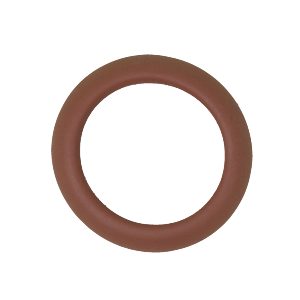Decreased sex drive
The sex drive or libido is something that comes and goes, and some don't experience it at all. It's important to remember that sex drive is very individual and can fluctuate in periods. We have gathered some advice here if you want to try to regain your sex drive. Remember that it's okay if it seems unmanageable. And remember that for some it's not possible to get back at all
First of all, it must be emphasized that this article is about a reduced sex drive that you wish to change, and not just low or no sex drive in general. Many people do not experience a desire for sex, which is also completely okay and not something that should be treated as a problem that needs solving. But if you have previously wanted sex and for one reason or another experience a reduced desire, it may be something you want to "fix". Decreased sexual desire should therefore be understood as little to no desire for sex - things one perceives as problematic, but are not problematic in themselves.
Getting started, it's important to try to remember if there is something specific that could be the cause of the decreased sex drive. If you have experienced a trauma, and especially a sexual trauma, it can be really difficult and unmanageable to feel desire again, and especially if you have to do it on your own. A violent experience is always something you should seek help from a professional for, and we recommend that you use the advice from this article in conjunction with a therapist, and not as the only help. For more advice, you can also read somatic therapist Molly Mørch's article on trauma in the body.
If you haven't experienced trauma, and perhaps aren't quite sure what the decreased sex drive could stem from, you can read our advice here.
Talk about it
Decreased sex drive can be something many are ashamed of, because for many it can seem like a matter of course in life and in a relationship that you want sex. But by talking about it with friends, partner(s) and others, you can hear their experiences and probably discover that they too have had the same experiences at some point. When you talk about it, it feels less shameful and also less of a problem. In this way, it can then feel more manageable to think about the causes for the decreased sex drive.
If you are in a relationship and experience a reduced sex drive, there are some things to keep in mind. First of all, it's completely normal that partners do not have exactly the same desire for sex, and that some may have a more active sex drive than others. But some may experience that it's always one person in the relationship who has to initiate sex. Some find that problematic, while others do not. If you don't initiate sex and feel like it's a problem, it can be a start to consider why and whether there are any specific reasons for this. Maybe you're afraid of rejection, maybe you don't feel comfortable with it, maybe you don't feel sexy enough - there can be many reasons and a lot can be rooted in insecurity. It can therefore be a great help to talk to your partner(s) about it.
Maybe you also experience being turned on in different ways. Some get turned on and want to have sex very spontaneously, while others need foreplay and to be "warmed up" before they feel the desire for sex. You can therefore try to think about how you get turned on and what it takes before you want sex. When you know it yourself, it is also easier to communicate your needs to partners.
Do you take medicine?
There are several different types of medicine that can affect your sex drive, mostly because they affect the hormones in the body. It could be medicines for neurological or psychiatric treatment, as well as medicines for heart problems. Many types of medication for anxiety or depression can affect your sex drive, which can sometimes be changed by switching to a different medication. However, you should never stop taking your medication or change medication without consulting your doctor first!
Certain forms of contraception can also have an effect. Birth control pills in particular can disrupt your hormones, which can affect your sex drive. If you have experienced a change in your sex drive after you started on birth control pills, it may therefore be a good idea to talk to your doctor about using another form of contraception.
Take some alone time
One way you can feel your sex drive is by feeling yourself. A decreased sex drive can sometimes be caused by stress, lack of sleep or other lifestyle changes, so slowing down can help. You can, for example, experiment with intimate massage, or have sex with yourself in different ways.
You can also try planning sex, both with yourself or with others. It sounds un-sexy, but by planning it you can prepare yourself, and if you feel a little stressed, it can also help having some time set aside for you and your pleasure. Then you can rest with the fact that there is a period of time where you don't have to achieve anything other than taking care of yourself. Doing things that make you feel sexy can also help here. Use your favorite cream all over your body, put on nice underwear, watch porn, look at yourself in the mirror while touching yourself, take a beautiful picture of yourself. But remember to give yourself time. Don't rush the process and if you're just not feeling it this time, stop. It's okay to not want sex, and it doesn't help forcing the desire.
Is the decreased sex drive due to pain?
So, a decreased sex drive can stem from all kinds of things, like problems in your relationship, uncertainty, stress or medication, but it can also stem from pain in connection with sex. This may particularly apply to people with a vulva, who may experience dyspareunia, which is pain during penetrative sex. If you experience pain when having sex, or perhaps even just thinking about sex, you should see a professional as it may be related to an underlying problem. You can also read our article on dyspareunia, where you can get advice on what you can do yourself.





